Author: Zeng Lu
The Biden administration released the 2024 fiscal year budget for international projects, focusing on addressing major global challenges and increasing multilateral support. The budget highlights three major features of the Biden administration's foreign aid policy.
On March 9, 2023, the Biden administration released its budget for fiscal year 2024, requesting US$70.5 billion in discretionary funds for international programs, which is 11% higher than the 2023 budget. The U.S. government's international program budget promotes national interests by supporting diplomacy and foreign assistance activities and is mainly allocated to the State Department, the U.S. Agency for International Development (USAID), and the Treasury (Treasury). The budget seeks $63.1 billion for the State Department and USAID and $4 billion for the Treasury Department, an increase of $5% and $71% respectively from the previous year.
What are the four key areas of focus in the Budget?
The 2024 international development budget focuses on major global challenges such as global health, humanitarianism, and climate change, seeks to offset China's influence, and increases support for multilateral institutions and key regions such as the Indo-Pacific.
Increase global health and humanitarian support.The budget proposes $10.9 billion for global health. Among them, more than $1.2 billion is for global health security, including support for the United States to expand bilateral cooperation to improve global health security capabilities, and requesting $500 million to support the Pandemic Fund (Pandemic Fund) to strengthen global prevention and preparedness for infectious diseases and coping skills. The Budget also calls for support for global health worker capacity building and increased support for voluntary family planning and reproductive health programmes. In addition, the budget seeks $2 billion to fulfill the United States' commitment to the Seventh Replenishment of the Global Fund to Fight AIDS, Tuberculosis, and Malaria and requests the first funding for the State Department's new Bureau of Global Health Security and Diplomacy.
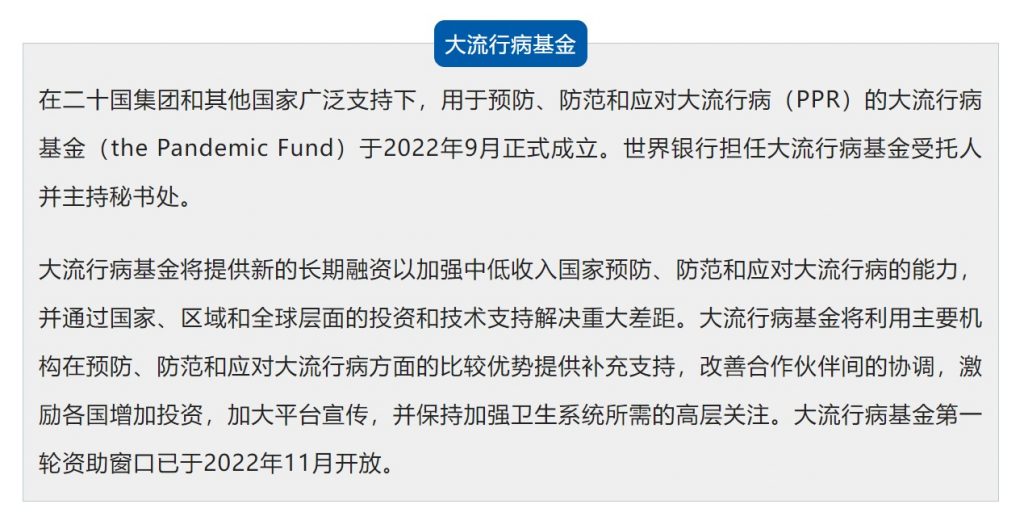
The Budget calls for more than $10.5 billion to support humanitarian response efforts. The budget plan supports the revitalization of the U.S. refugee admissions program, including efforts to resettle 125,000 refugees. In addition, the budget seeks $1.2 billion to alleviate global food insecurity, including support for bilateral agriculture and food security programmes, a contribution of $350,000 to support the International Fund for Agricultural Development (IFAD) Enhanced Adaptive Smallholder Agriculture Program (ASAP+) and the Global Agriculture and Food Safety Plan (GAFSP), etc.
The Budget calls for more than $3 billion in funding for the President's Emergency Plan for Adaptation and Resilience (PREPARE), including a $1.6 billion grant to the Green Climate Fund (GCF) and a $1.2 billion loan to the Clean Technology Fund (CTF) . The budget supports new tools such as loan guarantees to fund energy security and infrastructure projects, reduce the impact of energy supply and price volatility on developing countries, and expand U.S. influence in the Indo-Pacific region. The Budget also requests support for the World Bank's Global Infrastructure Facility and two Resilient Development Trust Funds to fund adaptation and response to and recovery from natural disasters. In addition, the Budget supports strengthening preparedness, response and resilience to extreme weather and disasters.
Deepen bilateral relations with Indo-Pacific, Africa and other regions.The budget requests more than $2.3 billion in discretionary funding for the State Department and USAID to support an open, secure, and connected Indo-Pacific to strengthen and renew U.S. alliances and partnerships in the region, including $90 million to support ASEAN, and $50 million to support the Indo-Pacific Economic Prosperity Framework (IPEF). In addition, the budget expands financial support for U.S. diplomatic work in the Indo-Pacific region, with a particular focus on Pacific island countries.
The Budget seeks to provide more than $8 billion in support of sub-Saharan Africa to advance U.S. strategic objectives in the region and U.S. commitments made during the U.S.-African Leaders Summit. The budget aims to foster new economic engagement, strengthen U.S. and African commitments to democracy and human rights, strengthen regional and global health and health security, promote food security, promote peace and security in regions such as the Sahel, and address the climate crisis.
Additionally, the budget seeks approximately $3 billion for de-escalation and integration in the Middle East, and more than $1 billion to advance security and prosperity in Central America and Haiti.
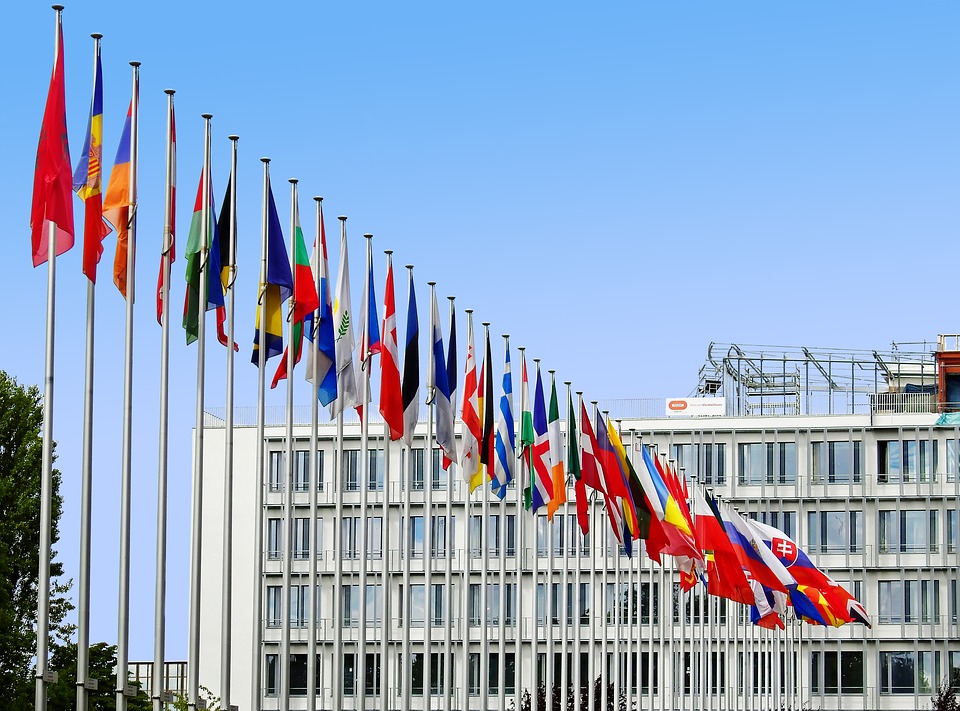
Support multilateral institutions to address global challenges.The Budget calls for continued U.S. support for the United Nations (UN) and multilateral development banks (MDBs) to address global challenges. The budget seeks to provide $150 million to support the return of the United States to UNESCO, donate $57 million to support the United Nations Population Fund (UNFPA), propose that the United States pay full dues to international organizations and UN peacekeeping operations, and begin to synchronize with $40 million Annual donation to "strengthen American leadership at the United Nations."
The Budget seeks nearly $2.3 billion in funding for multilateral development banks to support poverty reduction and development in low- and middle-income countries. These include a second tranche of $1.4 billion pledged to the World Bank's (WBG) International Development Association (IDA)'s latest replenishment round, a $260,000 loan guarantee for the World Bank's International Bank for Reconstruction and Development (IBRD) to support South Asia and Energy investment in Southeast Asia, payment of U.S. pledges to the Asian Development Fund (AsDF), African Development Fund (AfDF), etc., support for energy investment and emissions reduction initiatives at the Asian Development Bank (ADB), and support for the Inter-American Development Bank (IDB) Private sector lending window Inter-American Investment Corporation (IIC) capital increase for initial subscription.
Invest in infrastructure and the Indo-Pacific to offset Chinese influence.The Budget calls for $2 billion over five years to establish a new International Infrastructure Fund to finance strategic, high-quality and critical international infrastructure hardware such as roads, bridges and ports, and to stimulate U.S. economic growth. The budget calls for $2 billion in mandatory proposals to support the U.S. International Development Finance Corporation (DFC) equity program to form a revolving fund as a key financing tool to strengthen the U.S. role in the Indo-Pacific region. The Budget seeks more than $1 billion in discretionary funding to support the Millennium Challenge Corporation (MCC) to build critical infrastructure, reduce poverty, and advance democratic governance. In addition, the Budget proposes more than $50 billion in support for the Global Partnership for Infrastructure and Investment (PGII) through direct foreign aid, development, export finance and private sector funding.
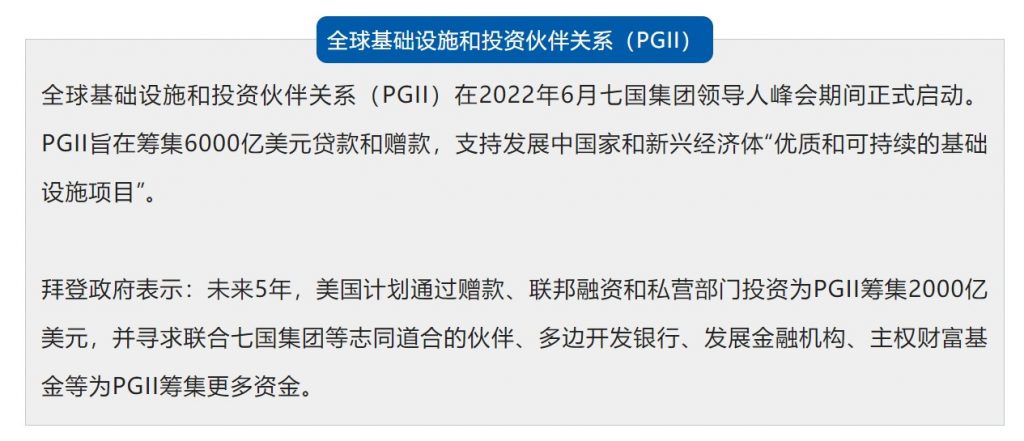
The Budget also includes an additional $2 billion in mandatory funding to make the Indo-Pacific economy more resilient and connected. The investment is intended to be a game-changer to outperform China and deepen U.S. partnerships in the region. The budget also proposes $6.5 billion in economic aid for the Marshall Islands, Micronesia and Palau over 20 years.
In addition, the budget also seeks to provide $400 million to establish a countermeasure fund against China's influence.
What are the three main features of US foreign aid highlighted in the budget?
The 2024 budget highlights the Biden administration's efforts to address global health, a historic humanitarian crisis that "has had a huge impact on global migration, poverty and hunger," and "escalating global threats" such as China's growing influence.
The first is to support multilateral organizations in promoting collective action to address global challenges.The U.S. government believes that in order to deal with global challenges such as climate change, global epidemics, and poverty, it is necessary to strengthen international cooperation and collective action to find global solutions. United Nations agencies and multilateral development banks play an important and unique role in promoting international cooperation and addressing global challenges, helping many countries avoid more serious consequences during the global crisis in recent years.
The FY2024 Budget proposes a package request of more than $2 billion to support UN agencies and multilateral development banks. The United States promotes collective action on global challenges by supporting United Nations agencies and multilateral development banks. After Biden took office, the United States rejoined the United Nations agencies that the Trump administration withdrew, restarted or increased financial support for multilateral organizations, and fully returned to multilateralism. The United States provides funds to support multilateral organizations in obtaining the resources needed to effectively address global challenges; maintains the status of the World Bank's largest donor country by investing in multilateral development banks, and mobilizes more countries to commit resources to jointly address global challenges; seeks to promote multilateral organizations through financial commitments and support Organizational reforms to strengthen global governance. In addition, the U.S. government seeks to protect national interests by supporting multilateral organizations, promoting peace and stability, promoting democracy, supporting economic development, and reducing poverty, among other foreign policy goals. For example, the United States expands markets for U.S. goods and services by promoting global economic stability and responding to transnational threats that could affect U.S. security.
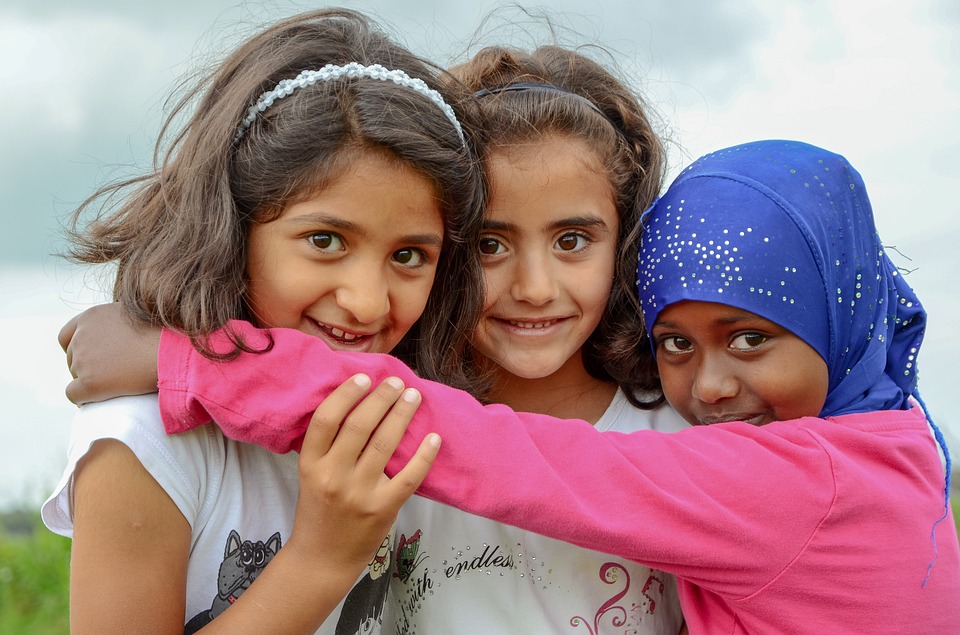
The second is to strengthen global leadership in key areas.The U.S. government believes that all countries in the world are facing urgent challenges such as global health, humanitarianism, and climate change. In the past three years, the new crown epidemic has triggered a global public health, economic and social crisis, and has had a direct impact on the health and safety of Americans. The conflict in Ukraine, the crisis in Syria and frequent natural disasters will lead to global humanitarian needs reaching record highs in 2023.
The Biden administration's new Bureau of Global Health Security and Diplomacy is still awaiting congressional approval. The new department is expected to bring the President's Emergency Plan for AIDS Relief, the Office of International Health and Biodefense into unified management, so as to comprehensively improve the United States' ability to respond to the global epidemic. In addition, U.S. support is important to meet the huge demand for pandemic funds in low- and middle-income countries. In addition, in recent years, the U.S. government has prioritized humanitarian assistance to countries facing persistent crises such as conflict, displacement, and food insecurity, and supported long-term development programs that promote economic growth and political stability in order to seek to address the root causes of humanitarian crises.
The Biden administration's 2024 fiscal year budget proposes budget requests of more than $10 billion in global health, refugees and humanitarian fields, aiming to maintain and rebuild the United States' global leadership in these fields. The U.S. government believes that increased support for global health and humanitarianism can lead and influence the policies and actions of other countries and multilateral international organizations. The U.S. government believes it has a moral obligation to help those in need and to promote global health and well-being. The U.S. government builds goodwill by promoting solutions to global health and humanitarian issues, strengthens relations between the United States and other countries, and promotes economic growth and stability in recipient countries through the provision of foreign assistance, and promotes solutions to the root causes of humanitarian crises, Promote the long-term stability and security of recipient countries and have a positive impact on U.S. national security. In addition, investing in global health and humanitarian fields can bring economic benefits such as trade and investment opportunities to corporate America.
The third is to offset China's influence.The United States believes that China is a major country with global influence, the only country that has the will to reshape the international order, and has continuously strengthened its economic, diplomatic, military and technological strength. The Biden administration regards China's growing international influence as an "escalating global threat", regards China as a strategic competitor, and regards foreign aid as a "diplomatic tool to compete with China and offset China's global influence".
The Biden administration's 2024 fiscal year budget proposes a package of foreign aid plans to "surpass" China's overseas influence. The U.S. government believes that by providing assistance to key regions such as the Indo-Pacific, it can establish stronger relationships and alliances with major allies and partners, and check and balance China's growing global influence. The U.S. finances “high-quality and sustainable” infrastructure in China’s dominant infrastructure sector and funds new projects globally to offset China’s overseas influence and advance the U.S. global development agenda. In addition, through foreign aid, the United States hopes to demonstrate its commitment to global leadership, promote democratic values and human rights, and support the creation of a network of partner countries that further resist Chinese values and influence abroad.

Where will the Budget go?
The budget is the starting point of the US government's annual appropriation process. It needs to go through lengthy negotiations and complicated procedures between the House of Representatives and the Senate before it can be approved and enter the final appropriation process. At present, the House of Representatives has begun to formulate a budget proposal, and it is expected to take several months to complete the preparation of the budget proposal. The next step is for the Senate to formulate a budget plan. After that, both houses of Congress will try to reach a consensus on a budget before the end of the fiscal year on Sept. 30.
Some reports point to a budget proposed by House Republicans that would cut the foreign aid budget by $45%, an even steeper cut than the one proposed by the Trump administration. Some experts believe that the Biden administration's foreign aid budget will face strong opposition from House Republicans. As the Republicans and Democrats control the House of Representatives and the Senate respectively, and there are major differences between the two parties on the foreign aid budget, budget negotiations may be extended beyond the end of the fiscal year at the end of September. As a result, the FY2024 foreign aid budget faces enormous uncertainty and a long and complex outlook.
References
https://www.devex.com/news/biden-s-6-8t-budget-proposal-would-boost-us-foreign-aid-here-s-how-105081
https://www.devex.com/news/the-us-foreign-affairs-budget-and-what-comes-next-102836

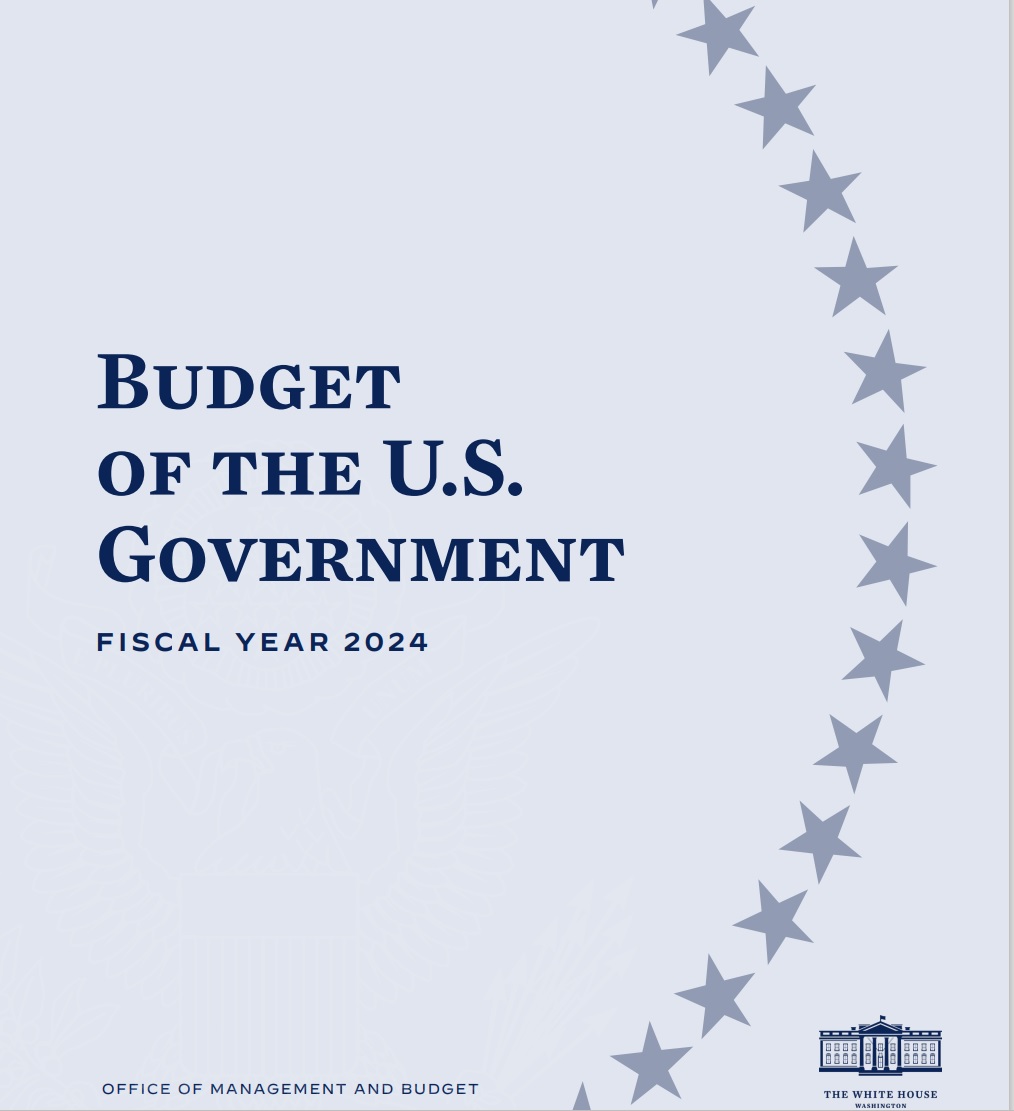
Comment (4)
Melonie Drouin| August 24, 2023
You've got a new fan in me. Keep up the amazing work!
IDOER| February 2, 2024
Thank you. 🙂
Kuliah Terbaik| December 21, 2023
Could I include this content in my dataset with your permission? Just to be transparent, this is for my personal hobby as a data scientist, and I'll be sure to cite the source in all instances. Here my campus page at Kampus Terbaik Thanks! ID: CMT-N56CLCEED8NUBRQG4K
IDOER| December 21, 2023
Dear Kuliah Terbaik, Thank you for your interest in International Development Observer. Please feel free to include the article in your dataset. IDO administrator.